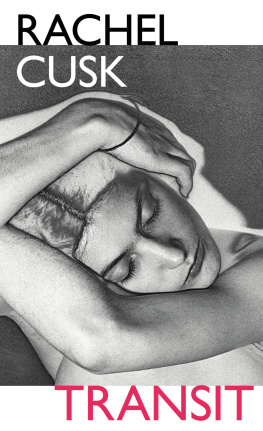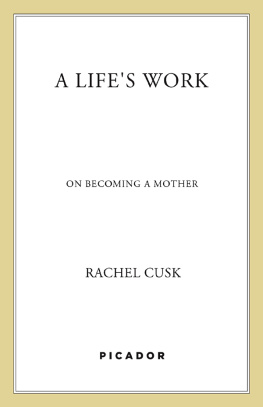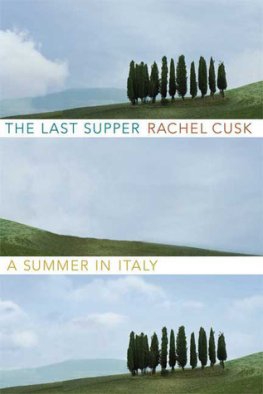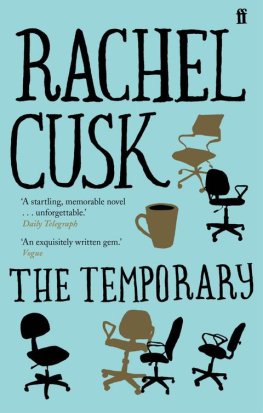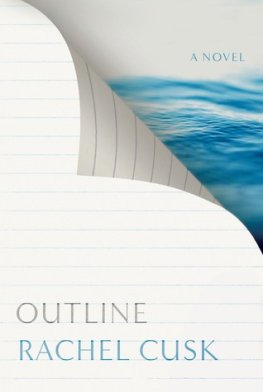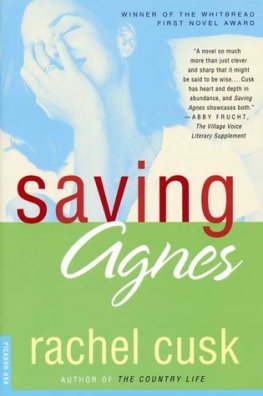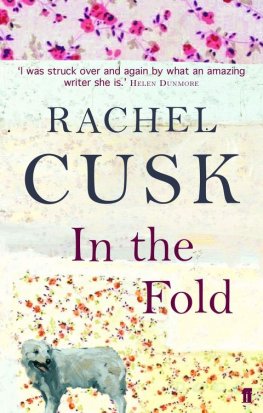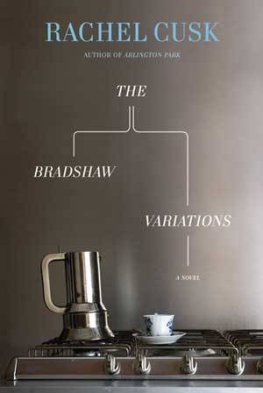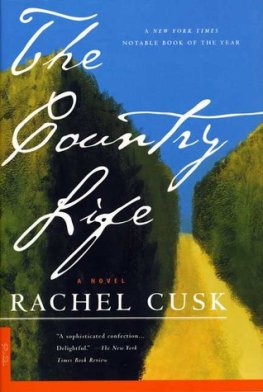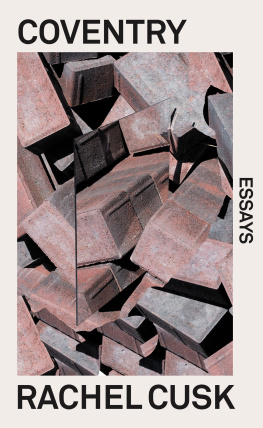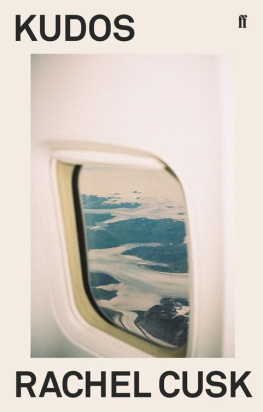Rachel Cusk - Transit
Here you can read online Rachel Cusk - Transit full text of the book (entire story) in english for free. Download pdf and epub, get meaning, cover and reviews about this ebook. year: 0, genre: Art. Description of the work, (preface) as well as reviews are available. Best literature library LitArk.com created for fans of good reading and offers a wide selection of genres:
Romance novel
Science fiction
Adventure
Detective
Science
History
Home and family
Prose
Art
Politics
Computer
Non-fiction
Religion
Business
Children
Humor
Choose a favorite category and find really read worthwhile books. Enjoy immersion in the world of imagination, feel the emotions of the characters or learn something new for yourself, make an fascinating discovery.
- Book:Transit
- Author:
- Genre:
- Year:0
- Rating:4 / 5
- Favourites:Add to favourites
- Your mark:
- 80
- 1
- 2
- 3
- 4
- 5
Transit: summary, description and annotation
We offer to read an annotation, description, summary or preface (depends on what the author of the book "Transit" wrote himself). If you haven't found the necessary information about the book — write in the comments, we will try to find it.
Transit — read online for free the complete book (whole text) full work
Below is the text of the book, divided by pages. System saving the place of the last page read, allows you to conveniently read the book "Transit" online for free, without having to search again every time where you left off. Put a bookmark, and you can go to the page where you finished reading at any time.
Font size:
Interval:
Bookmark:

In the wake of family collapse, a writer and her two young sons move to London. The process of upheaval is the catalyst for a number of transitions personal, moral, artistic, practical as she endeavours to construct a new reality for herself and her children. In the city she is made to confront aspects of living she has, until now, avoided, and to consider questions of vulnerability and power, death and renewal, in what becomes her struggle to reattach herself to, and believe in, life.
Filtered through the impersonal gaze of its keenly intelligent protagonist, Transit sees Rachel Cusk delve deeper into the themes first raised in her critically acclaimed Outline, and offers up a penetrating and moving reflection on childhood and fate, the value of suffering, the moral problems of personal responsibility and the mystery of change.
In this precise, short and yet epic cycle of novels, Cusk manages to describe the most elemental experiences, the liminal qualities of life, through a narrative near-silence that draws language towards it. She captures with unsettling restraint and honesty the longing to both inhabit and flee one s life and the wrenching ambivalence animating our desire to feel real.
Rachel Cusk was born in Canada in 1967 and moved to the United Kingdom in 1974. She is the author of nine novels and three works of non-fiction. She has won and been shortlisted for numerous prizes: her most recent novel, Outline (2014), was shortlisted for the Folio Prize, the Goldsmiths Prize, the Baileys Prize, the Giller Prize and the Canadian Governor Generals Award. It was also picked by the New York Times as one of the top ten books of the year. In 2003, Rachel Cusk was nominated by Granta magazine as one of 20 Best of Young British Novelists. In 2015 her version of Euripides Medea was put on at the Almeida Theatre with Rupert Goold directing and was shortlisted for the Susan Smith Blackburn Prize.
Fiction
Saving Agnes
The Temporary
The Country Life
The Lucky Ones
In the Fold
Arlington Park
The Bradshaw Variations
Outline
Non-Fiction
A Lifes Work
The Last Supper
Aftermath

An astrologer emailed me to say she had important news for me concerning events in my immediate future. She could see things that I could not: my personal details had come into her possession and had allowed her to study the planets for their information. She wished me to know that a major transit was due to occur shortly in my sky. This information was causing her great excitement when she considered the changes it might represent. For a small fee she would share it with me and enable me to turn it to my advantage.
She could sense the email continued that I had lost my way in life, that I sometimes struggled to find meaning in my present circumstances and to feel hope for what was to come; she felt a strong personal connection between us, and while she couldnt explain the feeling, she knew too that some things ought to defy explanation. She understood that many people closed their minds to the meaning of the sky above their heads, but she firmly believed I was not one of those people. I did not have the blind belief in reality that made others ask for concrete explanations. She knew that I had suffered sufficiently to begin asking certain questions, to which as yet I had received no reply. But the movements of the planets represented a zone of infinite reverberation to human destiny: perhaps it was simply that some people could not believe they were important enough to figure there. The sad fact, she said, is that in this era of science and unbelief we have lost the sense of our own significance. We have become cruel, to ourselves and others, because we believe that ultimately we have no value. What the planets offer, she said, is nothing less than the chance to regain faith in the grandeur of the human: how much more dignity and honour, how much kindness and responsibility and respect, would we bring to our dealings with one another if we believed that each and every one of us had a cosmic importance? She felt that I of all people could see the implications here for improvements in world peace and prosperity, not to mention the revolution an enhanced concept of fate could bring about in the personal side of things. She hoped I would forgive her for contacting me in this way and for speaking so openly. As she had already said, she felt a strong personal connection between us that had encouraged her to say what was in her heart.
It seemed possible that the same computer algorithms that had generated this email had also generated the astrologer herself: her phrases were too characterful, and the note of character was repeated too often; she was too obviously based on a human type to be, herself, human. As a result her sympathy and concern were slightly sinister; yet for those same reasons they also seemed impartial. A friend of mine, depressed in the wake of his divorce, had recently admitted that he often felt moved to tears by the concern for his health and well-being expressed in the phraseology of adverts and food packaging, and by the automated voices on trains and buses, apparently anxious that he might miss his stop; he actually felt something akin to love, he said, for the female voice that guided him while he was driving his car, so much more devotedly than his wife ever had. There has been a great harvest, he said, of language and information from life, and it may have become the case that the faux-human was growing more substantial and more relational than the original, that there was more tenderness to be had from a machine than from ones fellow man. After all, the mechanised interface was the distillation not of one human but of many. Many astrologers had had to live, in other words, for this one example to have been created. What was soothing, he believed, was the very fact that this oceanic chorus was affixed in no one person, that it seemed to come from everywhere and nowhere: he recognised that a lot of people found this idea maddening, but for him the erosion of individuality was also the erosion of the power to hurt.
It was this same friend a writer who had advised me, back in the spring, that if I was moving to London with limited funds, it was better to buy a bad house in a good street than a good house somewhere bad. Only the very lucky and the very unlucky, he said, get an unmixed fate: the rest of us have to choose. The estate agent had been surprised that I adhered to this piece of wisdom, if wisdom it was. In his experience, he said, creative people valued the advantages of light and space over those of location. They tended to look for the potential in things, where most people sought the safety of conformity, of what had already been realised to the maximum, properties whose allure was merely the sum of exhausted possibilities, to which nothing further could be added. The irony, he said, was that such people, while afraid of being original, were also obsessed with originality. His clients went into ecstasies over the merest hint of a period feature: well, move out of the centre a little and you could have those in abundance for a fraction of the cost. It was a mystery to him, he said, why people continued to buy in over-inflated parts of the city when there were bargains to be had in up-and-coming areas. He supposed at the heart of it was their lack of imagination. Currently we were at the top of the market, he said: this situation, far from discouraging buyers, seemed actually to inflame them. He was witnessing scenes of outright pandemonium on a daily basis, his office stampeded with people elbowing one another aside to pay too much for too little as though their lives depended on it. He had conducted viewings where fights had broken out, presided over bidding wars of unprecedented aggression, had even been offered bribes for preferential treatment; all, he said, for properties that, looked at in the cold light of day, were unexceptional. What was striking was the genuine desperation of these people, once they were in the throes of desire: they would phone him hourly for updates, or call in at the office for no reason; they begged, and sometimes even wept; they were angry one minute and penitent the next, often regaling him with long confessions concerning their personal circumstances. He would have pitied them, were it not for the fact that they invariably erased the drama from their minds the instant it was over and the purchase completed, shedding not only the memory of their own conduct but also of the people who had had to put up with it. He had had clients who had shared the most gruesome intimacies with him one week and then walked past him in the street the next without the slightest sign of recognition; he had seen couples who had sunk to the depths before his eyes, now going obliviously about their business in the neighbourhood. Only in the very completeness of their oblivion did he sometimes detect a hint of shame. In the early days of his career he had found such incidents upsetting, but luckily experience had taught him not to take it to heart. He understood that for them he was a figure conjured out of the red mist of their desire, an object, so to speak, of transference. Yet the desire itself continued to bewilder him. Sometimes he concluded that people only want what it is not certain they can have; at other times it seemed to him more complex. Frequently, his clients would admit to feeling relief that their desire had been thwarted: the same people who had stormed and wept like frustrated children because a property was being denied them, would be found days later sitting calmly in his office, expressing gratitude for the fact that they hadnt got it. They could see now that it would have been completely wrong for them; they wanted to know what else he had on his books. For most people, he said, finding and procuring a home was an intensely active state; and activity entails a certain blindness, the blindness of fixation. Only when their will has been exhausted do the majority of people recognise the decree of fate.
Font size:
Interval:
Bookmark:
Similar books «Transit»
Look at similar books to Transit. We have selected literature similar in name and meaning in the hope of providing readers with more options to find new, interesting, not yet read works.
Discussion, reviews of the book Transit and just readers' own opinions. Leave your comments, write what you think about the work, its meaning or the main characters. Specify what exactly you liked and what you didn't like, and why you think so.

